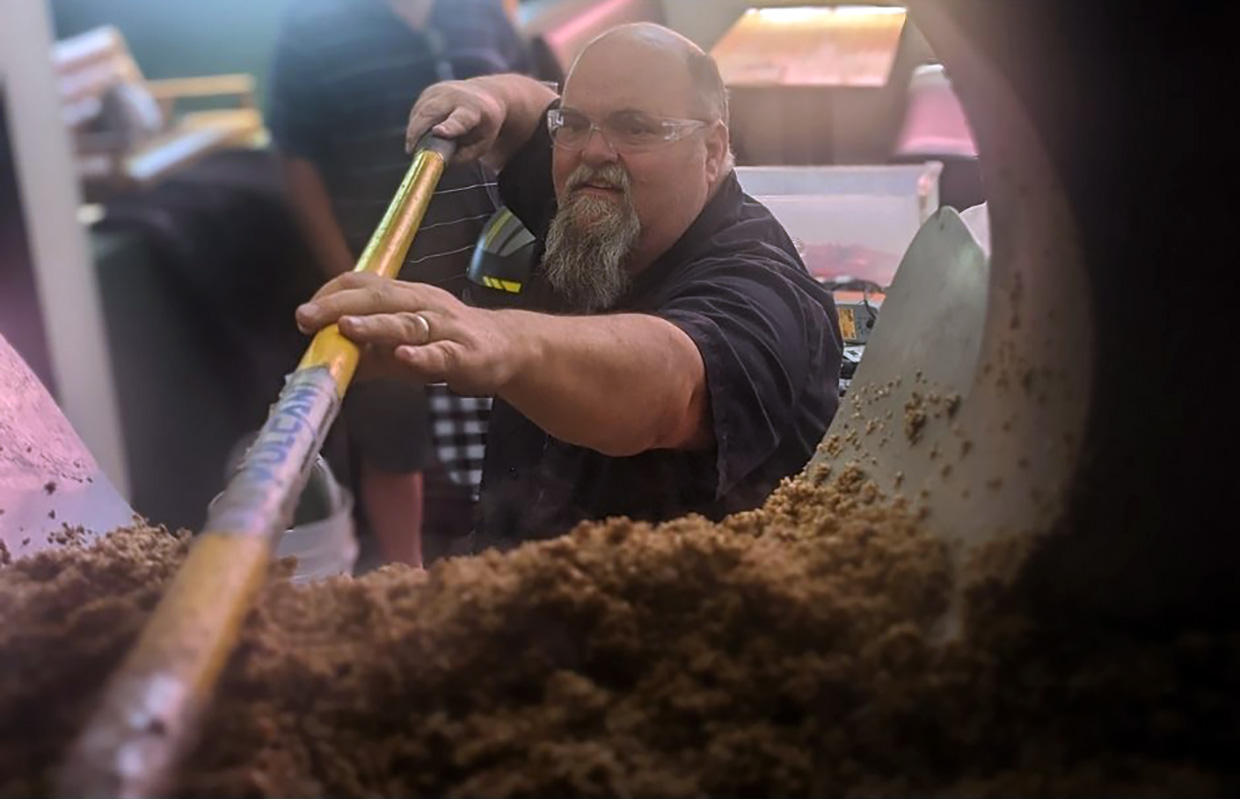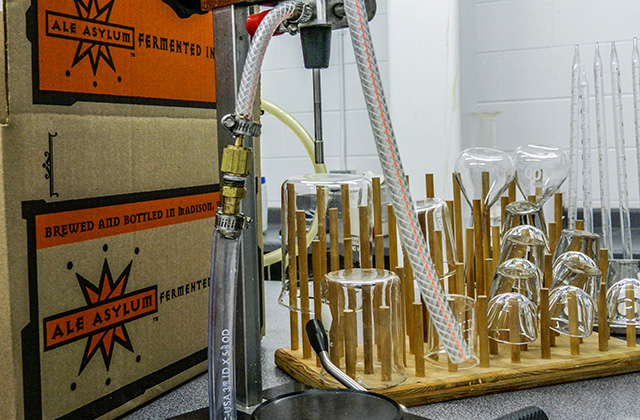
Having some sort of adjunct in a product should always serve a tangible purpose. That’s the way that Mother Road’s Peter Kruger puts it.
“We definitely are willing to throw more high-cost adjuncts at the tap room beers, as the margin structure is healthier,” notes the Flagstaff, Arizona brewery’s CIO. “However, we strive to produce beers of distinction and as such will use higher-cost adjuncts, fruit puree in particular, when we feel it is necessary to achieve the flavors we’re striving for.”
A fruit puree like blood orange is used for the brewery’s Tower Station Roadside Grove IPA, along with mango in its Turbo Tower Station Imperial IPA.
“We have recently moved from whirlpool additions, which are safer and easier, to fermenter additions about a day before terminal gravity,” Kruger explained. “This preserves more of the fruit esters and impact.”
In beers where you are looking to purely add some flavor or top note, aroma extracts work great, notes Indeed Brewing’s Dayton Coffey.
“They are also much easier to use than fruit purees especially when production volumes begin to rise,” said the Minneapolis brewery’s Director of Beer. “If you want the chosen fruit to play a starring role in the finished beer then it’s hard to go past using real fruit.
“Our Milwaukee brewery has brewed several different styles of beer using fruit purees and they always work out great.”
Dark Sky mainly uses purees for fruits and vegetable adjuncts, added head brewer and co-owner Ryan Sandlin.
“Vanilla is best in an extract unless it’s small batches,” he said, “then Madagascar vanilla beans are used.”
Purees always are chosen first, said Oakshire’s Dan Russo.
“Next, fruit concentrate,” said the COO of the Portland brewery. “It’s real fruit still. Never extracts in the brewery.
“I think first and foremost, fruit is great in various forms of sour beer. Paired right it can fit into IPAs as well. We’ve also done it in stouts before which can be delightful. I think it is just about experimentation and what you as a brewer want to create.”
Mother Road typically likes to use purees and extracts together, Kruger said.
“The puree brings a strong fruit flavor, while the extracts bring the ‘high notes’ and really amplify things,” he said. “And the perception of fruity flavor is always ramped up by a great aroma.”
Whole fruit is probably the hardest thing to work with, Coffey said.
“The resulting beer is often great but it can take a very long time to get the flavor you’re chasing and getting the fruit into and out of the tanks is a nightmare,” they said. “Anything in powder form is also not super fun to work with.”
Photo courtesy Mother Road Brewing






Be the first to comment